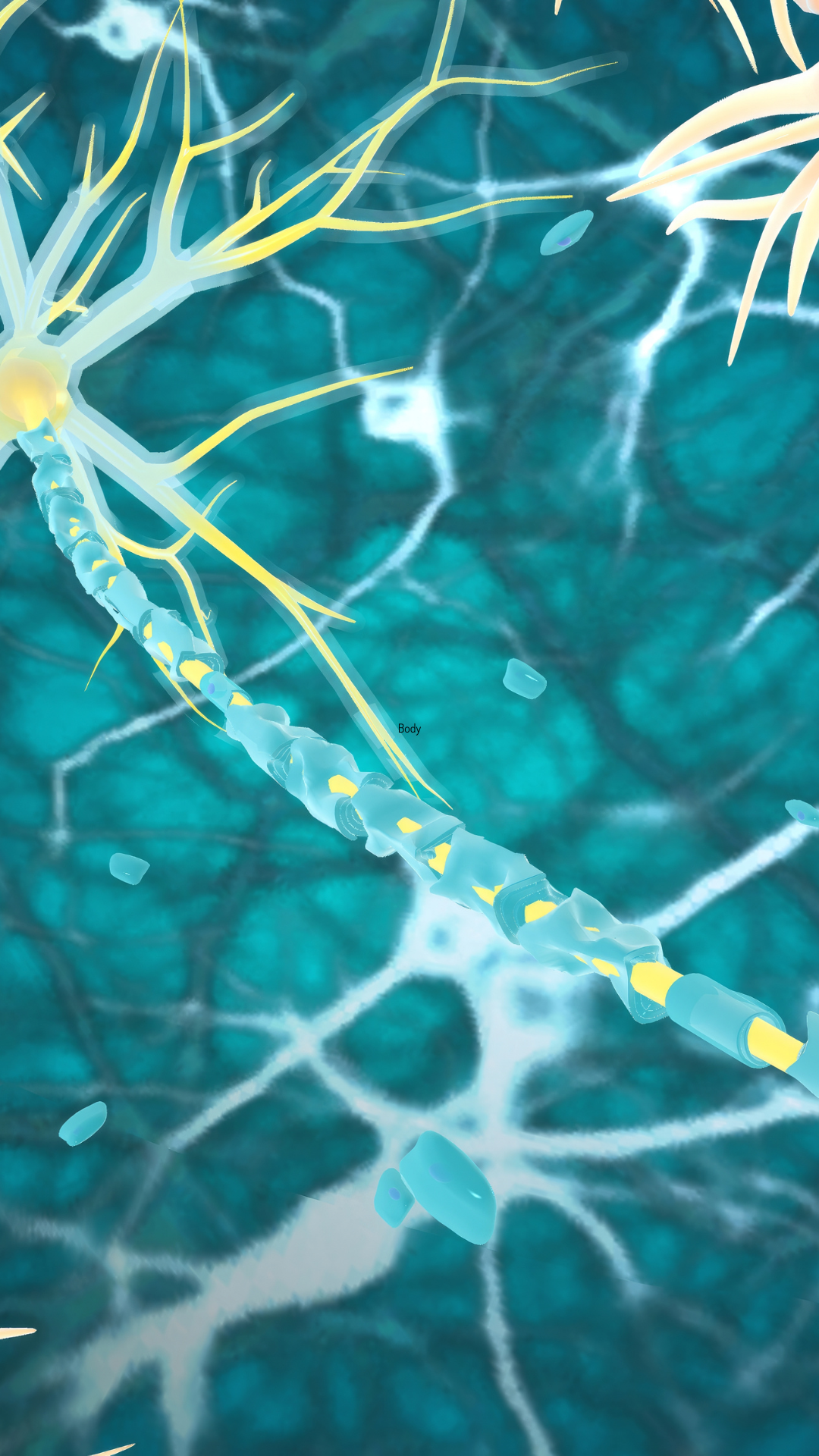Childhood trauma is a deeply impactful experience that can leave lasting scars on an individual's physical and emotional health. Recent studies have shown a significant correlation between early-life trauma and the development of autoimmune diseases in adulthood. This article will delve into the mechanisms behind this connection, exploring how childhood trauma can trigger chronic health issues later in life and offering strategies for healing and prevention.
The Impact of Childhood Trauma
Childhood trauma encompasses a broad spectrum of adverse experiences, including physical, emotional, or sexual abuse, neglect, witnessing violence, or living with a parent who has mental illness or substance abuse issues. Such traumatic events can severely disrupt normal development and leave a lasting imprint on both a child’s psyche and body, with far-reaching consequences that can persist well into adulthood.
How Trauma Affects the Body and Mind
Traumatic experiences trigger the body’s stress response system, leading to the release of hormones such as cortisol and adrenaline. While these hormonal responses are crucial for immediate survival, chronic activation due to repeated or prolonged trauma can cause significant physiological changes. Over time, these changes can have several detrimental effects on health, including:
Immune System Weakening:
Chronic stress from trauma can suppress the immune system, making the body more susceptible to infections and diseases. Persistent high levels of cortisol can interfere with the immune response, reducing the body’s ability to fight off pathogens effectively.
Inflammation and Autoimmune Responses:
Long-term exposure to stress hormones can lead to chronic inflammation, which is a precursor to various autoimmune diseases. Studies have shown that individuals with a history of childhood trauma are at a higher risk of developing conditions such as rheumatoid arthritis, lupus, and other inflammatory diseases later in life.
Altered Brain Function:
Trauma can affect brain development, particularly in areas responsible for emotion regulation, memory, and executive functioning. Changes in the brain’s structure and function can lead to cognitive impairments, emotional dysregulation, and mental health disorders such as anxiety, depression, and PTSD.
Increased Vulnerability to Mental Health Issues:
The psychological impact of childhood trauma can lead to long-term mental health problems. Individuals who have experienced significant trauma may struggle with low self-esteem, chronic stress, and difficulties in forming healthy relationships. This increased vulnerability can contribute to the development of mood disorders, personality disorders, and other psychological conditions.
Behavioural and Social Consequences:
Children who endure trauma often exhibit behavioural changes such as aggression, withdrawal, and difficulty in social interactions. These behaviours can persist into adulthood, affecting personal and professional relationships and overall quality of life.
Understanding Autoimmune Diseases
Autoimmune diseases occur when the body’s immune system mistakenly attacks its own tissues. Conditions such as Addison’s disease, autoimmune hemolytic anemia, autoimmune thrombocytopenia purpura, celiac disease, dermatomyositis, Graves’ disease, Hashimoto’s thyroiditis, idiopathic myocarditis, idiopathic pulmonary fibrosis, insulin-dependent diabetes mellitus, irritable bowel disease, multiple sclerosis, myasthenia gravis, pernicious anemia, psoriasis, rheumatoid arthritis, scleroderma, Sjogren disease, systemic lupus erythematosus, vitiligo, and Wegener’s granulomatosis. These diseases can cause significant disability and require lifelong management.
The Biological Mechanisms
Research suggests several biological mechanisms through which childhood trauma can contribute to the development of autoimmune diseases:
- Chronic Inflammation: Trauma-induced stress can lead to chronic inflammation, a key factor in many autoimmune conditions. Persistent inflammation can damage tissues and organs, making them targets for the immune system.
- Epigenetic Changes: Trauma can cause changes in gene expression without altering the DNA sequence itself. These epigenetic changes can affect immune function and increase susceptibility to autoimmune diseases.
- Dysregulated Stress Response: A history of trauma can lead to an overactive or dysregulated stress response system. This ongoing state of heightened alert can impair the immune system’s ability to distinguish between self and non-self, leading to autoimmune reactions.

Research Evidence
Numerous studies have established a link between childhood trauma and autoimmune diseases. For example, a study published in the journal Psychosomatic Medicine found that individuals with a history of childhood abuse were more likely to develop autoimmune diseases in adulthood. Childhood traumatic stress significantly increases the chances of being hospitalised with an autoimmune disease later in adulthood. This recent research documents how early life stress can lead to lasting inflammation and health issues later in life.
Recognising the Signs and Symptoms
Emotional and Psychological Symptoms
- Anxiety and Depression: Chronic feelings of sadness, hopelessness, and intense worry.
- PTSD Symptoms: Flashbacks, nightmares, and hypervigilance related to past trauma.
- Emotional Dysregulation: Difficulty managing emotions, leading to mood swings and irritability.
Physical Symptoms
- Chronic Pain: Persistent pain in muscles and joints, often without a clear cause.
- Fatigue: Constant tiredness that doesn’t improve with rest.
- Gastrointestinal Issues: Frequent stomach problems such as IBS or chronic indigestion.
Strategies for Healing and Prevention
Therapeutic Interventions
Trauma-Informed Therapy: Working with a therapist trained in trauma can help address the root causes of emotional and physical symptoms. Therapies such as EMDR (Eye Movement Desensitization and Reprocessing) and somatic experiencing can be particularly effective.
Cognitive-Behavioral Therapy (CBT): CBT can help individuals reframe negative thought patterns and develop healthier coping mechanisms.
Lifestyle Changes
Stress Management: Incorporating stress-reducing practices such as mindfulness, meditation, and yoga can help regulate the stress response system and reduce inflammation.
Healthy Diet: Eating a balanced diet rich in anti-inflammatory foods, such as fruits, vegetables, and omega-3 fatty acids, can support immune health.
Regular Exercise: Engaging in regular physical activity can boost mood, reduce stress, and improve overall health.
Support Systems
Social Support: Building a strong support network of friends, family, and support groups can provide emotional comfort and reduce feelings of isolation.
Community Resources: Many communities offer resources for trauma survivors, including support groups, workshops, and educational programs.
Addressing the Long-Term Effects of Childhood Trauma
Childhood trauma can have profound effects on the immune system, leading to chronic activation of the stress response, persistent inflammation, and epigenetic changes that increase the risk of autoimmune diseases.
Trauma-informed therapy can address the emotional and psychological impacts of trauma, helping to regulate the stress response and potentially reduce the risk of developing autoimmune conditions.
To manage autoimmune diseases linked to childhood trauma, adopting stress management techniques, maintaining a healthy diet, engaging in regular exercise, and building strong social support networks are all beneficial strategies.
Research indicates a higher prevalence of autoimmune conditions such as lupus, rheumatoid arthritis, and multiple sclerosis among individuals with a history of childhood trauma.
While the scars of childhood trauma may never fully disappear, effective therapy and supportive interventions can enable individuals to lead healthier, more fulfilling lives.
Recognising signs that childhood trauma might be affecting health, such as chronic pain, fatigue, gastrointestinal issues, anxiety, depression, and PTSD symptoms, is crucial for seeking help and initiating the healing process.


Are you looking to start your healing journey from childhood trauma?
We have a multi modality approach to trauma healing.
Services we offer:
- Trauma focused massage therapy
- Acupuncture
- Psycotherapy and counselling
- Art therapy
- EMDR
- Yoga therapy
- Nutritional Medicine

The Silent Wound: Understanding the Lasting Impact of Childhood Emotional Neglect
Written by Sarah GilliganWhen we think of childhood trauma, we often picture overt abuse—yelling, violence, or abandonment. But there’s another kind of trauma that leaves no visible scars, yet quietly shapes the way we see ourselves and relate to the world:...

The Crucial Role of Nutrition in Mental Health
In today's world, mental health issues are a growing concern, affecting nearly one billion people worldwide. As a clinical nutritionist with a strong focus on personalised nutrition and pathology, I emphasise the importance of identifying key nutrient deficiencies to...
